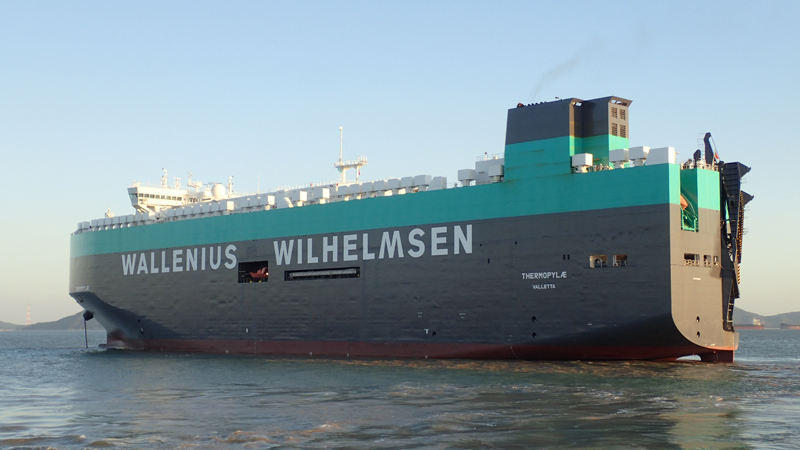Wallenius Wilhelmsen, A.P. Møller Maersk and customers such as BMW Group believe that LEO - a blend of lignin and ethanol - could be part of the future solution for sustainable shipping.

From the phone, tablet or computer you are reading this on, to the fruit you eat, the sneakers you wear or the car you drive, around 80% of the goods you use daily have come to you by ship.
Shipping accounts for 2-3% of global CO2 emissions, a proportion that is set to increase as global trade continues to grow slugglishly, but steadly. As such, the industry has an urgent need to reduce its environmental impact.
Maersk and Wallenius Wilhelmsen have teamed up with Copenhagen University, and major costumers, including BMW Group, to form the LEO Coalition, which will explore the environmental and financial viability of using LEO (Lignin Ethanol Oil) for shipping.
The marine sector has very different fuel requirements than automotive or aviation. “Shipping requires bespoke low-carbon fuel solutions which can make the leap from the laboratory to the global shipping fleet. Initiatives such as the LEO Coalition are an important catalyst in this process,” explains Søren Toft, Maersk Chief Operating Officer.
Lignin is a structural bio-polymer which contributes to the rigidity of plants. Lignin is isolated in large quantities as a byproduct of lignocellulosic ethanol and pulp and paper production factories. Currently, it is often incinerated to produce steam and electricity.
“Our customers’ ambitions on sustainability are increasing rapidly, and we applaud this development. Clearly, LEO would be a great step forward for supply chain sustainability, and it has the potential to be a viable solution for today’s fleet, and not just a future vision,” says Craig Jasienski, CEO Wallenius Wilhelmsen.
The need for sustaininable transport and logistics is becoming more prevalent as global leading companies explore emission reduction potentials along the entire value chain of their worldwide distributed goods.
Having production sites and vehicle distribution processes all over the world, sea transport logistics plays an important role at the BMW Group. As the company fosters sustainability along the entire value chain, participating in the LEO project is a valuable commitment.
Copenhagen University is currently running the lab-scale development of this potential marine fuel that will only utilise sustainably sourced and certified ethanol.
The project aims to move into phase two – testing the fuel on engines – in Q2 2020. Following a successful phase II, phase III will begin – the scaling up of LEO fuel production.
Source: Wallenius Wilhelmsen